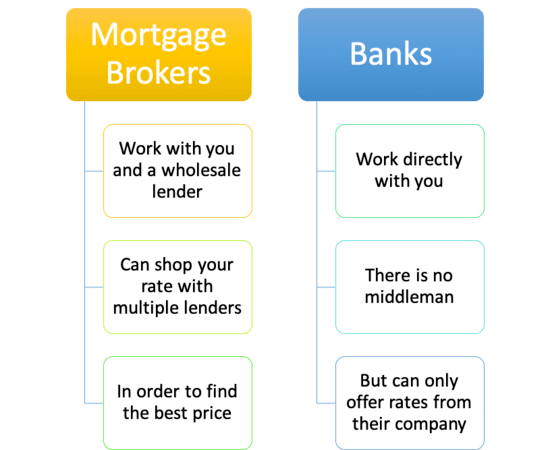Jumbo Loan: Flexible Mortgage Solutions for Big Home Acquisitions
Comprehending What a Jumbo Financing Entails and Exactly How It Varies From Traditional Financings
Navigating the intricacies of big loans exposes a financing option tailored for those venturing into high-value actual estate, generally going beyond the limitations established by the Federal Housing Money Company. The substantial danger associated with big lendings demands a lot more rigorous qualification demands, including greater credit score ratings and considerable down repayments.
Definition of Jumbo Fundings
Jumbo finances are a kind of home mortgage that go beyond the conforming lending restrictions established by the Federal Real Estate Financing Firm (FHFA) These car loans deal with consumers that need to fund homes that are more pricey than what standard car loan limitations permit. The FHFA develops annual conforming lending restrictions, and any lending going beyond these thresholds is identified as a jumbo lending.
Typically, jumbo loans are made use of in high-cost actual estate markets where home costs substantially go beyond nationwide standards, such as in cities or high-end housing fields. As these lendings are not eligible for purchase by Fannie Mae or Freddie Mac, they carry integral risks for lending institutions due to their bigger size and non-conformity (jumbo loan). Consequently, lenders usually impose more rigorous qualification criteria for jumbo loans than basic adapting car loans.
Customers seeking big lendings have to typically show a strong monetary account, consisting of a higher credit score, durable income confirmation, and considerable down settlement, usually 20% or even more. Furthermore, loan providers might need extra extensive documents to examine the debtor's ability to manage larger month-to-month payments. Recognizing the certain features of jumbo lendings is important for possible consumers browsing this sector of the home mortgage market.
Traditional Finances Review
While big car loans provide to high-value property funding, standard lendings stand for the even more common home mortgage alternative in the housing market. These car loans are not insured or assured by any kind of federal government entity, such as the Federal Real Estate Administration (FHA) or the Division of Veterans Affairs (VA) Instead, they are backed by personal loan providers and comply with guidelines set by government-sponsored ventures (GSEs) like Fannie Mae and Freddie Mac.
Traditional finances are typically supplied with fixed or adjustable rate of interest and differ in regards to duration, frequently covering 15 to three decades. Borrowers frequently choose traditional finances for their predictable monthly payments, which can promote long-term economic planning. In addition, they are offered for main homes, second homes, and investment buildings, offering versatility to satisfy varied consumer needs.

Trick Distinctions Between Car Loans
Comprehending the subtleties between different sorts of fundings is critical for potential property buyers navigating the complex mortgage landscape. At the leading edge of this decision-making process are traditional car loans and big financings, each possessing distinct features and offering different consumer needs. The primary distinction relaxes in the loan amount. Jumbo fundings exceed the conforming lending limits set by the Federal Housing Finance Firm (FHFA), which differ by area. In contrast, conventional fundings follow these restrictions and are usually purchased by government-sponsored entities like Fannie Mae and Freddie Mac.

Furthermore, the down repayment requirements can differ substantially. Jumbo finances generally call for larger down payments, often going beyond 20%, to minimize threat. Traditional lendings, alternatively, might permit for lower deposits, with some programs accepting as low as 3% for competent buyers.
Credentials Requirements
Securing a big lending involves meeting more rigid qualification requirements contrasted to conventional loans, mirroring the boosted danger to lenders. These lendings, which surpass the adjusting lending restrictions set by the Federal Real Estate Money Firm (FHFA), are not have a peek here eligible for acquisition by Freddie Mac or Fannie Mae, thus exposing lending institutions to better financial risk - jumbo loan. Therefore, customers should demonstrate a high creditworthiness and financial stability
A robust credit rating, generally 700 or greater, is critical her comment is here for approval. Lenders also expect a lower debt-to-income (DTI) proportion, usually not exceeding 43%, ensuring that customers can manage substantial month-to-month settlements together with other monetary commitments. Furthermore, a substantial cash reserve is normally called for, commonly amounting to 6 months of home loan settlements, to reassure lending institutions of the consumer's economic resilience.
Down settlement expectations are also elevated, regularly beginning at 20% or even more of the residential property's worth. While this is a safeguard for lenders, it necessitates substantial upfront funding from borrowers.
Picking the Right Lending
Navigating the complexity of big fundings calls for mindful factor to consider when selecting one of the most suitable lending choice. With the more comprehensive variety of options readily available to those seeking big lendings, the decision-making procedure must involve a detailed analysis of one's financial profile and lasting objectives. Unlike standard fundings, jumbo lendings frequently come with stricter demands and varied interest prices, which necessitate extensive research and a clear understanding of one's economic standing.
When selecting in between different jumbo lending offerings, it is necessary to evaluate the financing terms, including rates of interest, settlement routines, and associated charges. Debtors ought to compare the prices offered by different loan providers to ensure they safeguard one of the most beneficial terms. Additionally, recognizing the implications of taken care of versus variable-rate mortgages (ARMs) is important, as each option presents unique advantages and dangers depending on market conditions and individual financial methods.
Engaging with an economic advisor or home mortgage broker can provide useful understandings tailored to individual conditions. These experts can assist in navigating the subtleties of jumbo lendings, making certain that customers are well-informed and outfitted to pick a car loan that straightens websites with their monetary goals, inevitably promoting a smoother home-buying process.
Conclusion
In summary, big car loans function as an economic instrument for acquiring high-value residential or commercial properties, requiring stringent qualification needs and higher rates of interest due to the raised risk for lenders. Unlike conventional finances, which comply with FHFA limits and may obtain backing from Fannie Mae or Freddie Mac, jumbo fundings require a minimum credit report of 700 and substantial deposits. Comprehending these differences is essential for debtors in high-cost realty markets to determine the most suitable car loan choice for their demands.
The FHFA establishes annual adjusting financing limits, and any kind of car loan exceeding these limits is identified as a big finance.
At the center of this decision-making procedure are conventional loans and big car loans, each having distinct features and offering various debtor requirements.Safeguarding a jumbo car loan entails fulfilling extra rigid certification requirements contrasted to standard fundings, mirroring the raised danger to lenders. Unlike traditional fundings, jumbo loans usually come with more stringent requirements and varied rate of interest rates, which demand extensive research and a clear understanding of one's monetary standing.
Unlike traditional lendings, which adhere to FHFA limitations and might receive backing from Fannie Mae or Freddie Mac, jumbo finances require a minimum credit report rating of 700 and significant down payments.